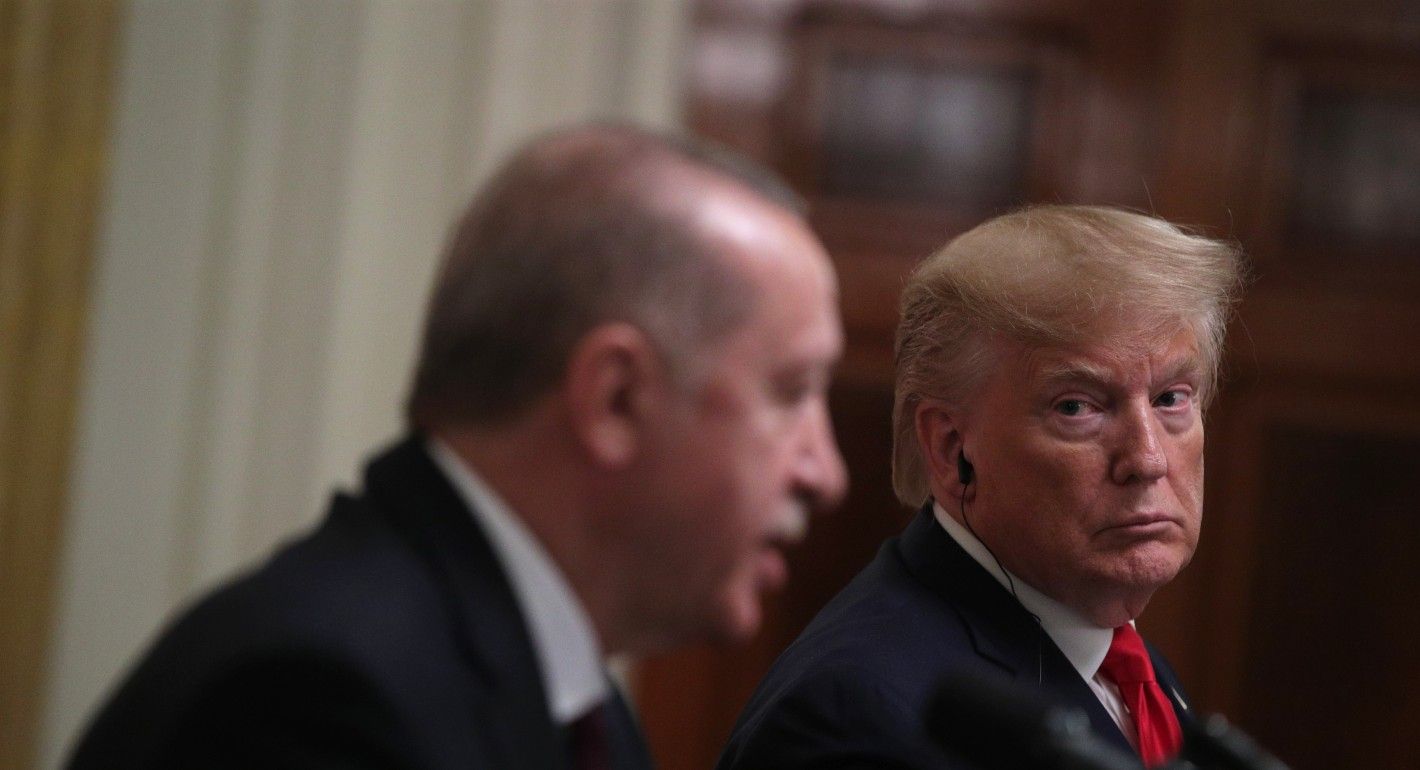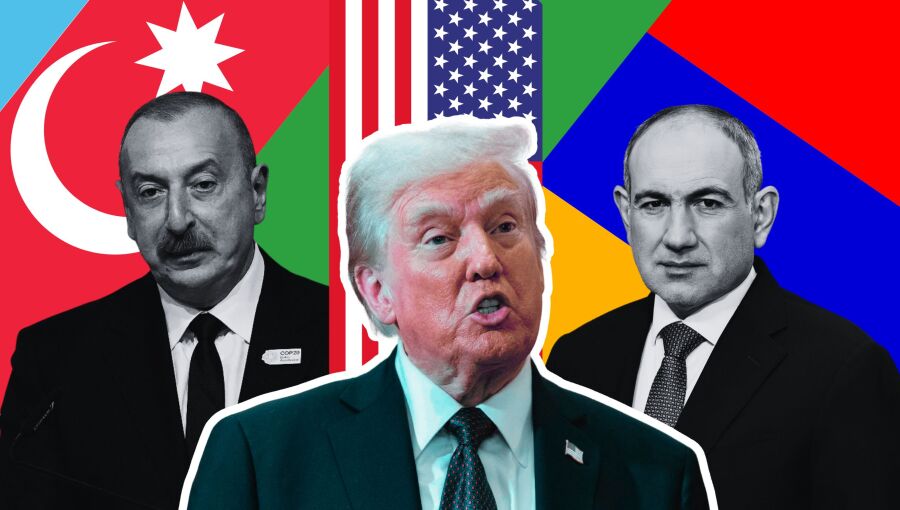Trump"s "Bridge to Peace" Aims to Reshape Armenia-Azerbaijan Relations Amid Tensions
In a significant diplomatic effort, President Donald Trump is set to oversee a landmark peace deal between Armenia and Azerbaijan, two nations that have been embroiled in conflict for decades. The agreement, which is expected to be unveiled during a two-day summit starting Thursday, is centered around a key infrastructure project dubbed the "Trump Route for International Peace and Prosperity" (TRIPP), commonly referred to as the "Trump Bridge." This initiative promises to connect Azerbaijan"s mainland with its exclave province of Nakhchivan through Armenian territory, a route that has been the subject of intense rivalry and geopolitical maneuvering.
Background & Context
The South Caucasus region has long been a flashpoint for tensions between Armenia and Azerbaijan, primarily over the disputed Nagorno-Karabakh territory. Recent escalations have seen Azerbaijan launching a rapid offensive, reclaiming control over Nagorno-Karabakh and dismantling 30 years of Armenian-backed separatist governance. This shift has left Armenia rethinking its alliances, particularly its historically close ties with Russia and its fraught relationship with Turkey, a key ally of Azerbaijan. The proposed "Trump Bridge" stands as a potential turning point in regional dynamics, promising not only to facilitate trade but also to foster a fragile peace in a historically volatile area.
Key Developments
While specific details of the agreement have yet to be disclosed, the summit is poised to address critical issues surrounding the contested "Zangezur corridor"—the route that Azerbaijan wishes to control, which Armenia refers to as the "Syunik road." The implications of this project extend beyond mere transportation; it symbolizes a shift in power dynamics and could redefine economic relationships in the region. Experts anticipate that the deal could lead to increased investment and trade opportunities for both nations, provided that it can withstand the existing tensions and mutual distrust.
During the summit, both Armenian Prime Minister Nikol Pashinyan and Azerbaijani President Ilham Aliyev are expected to outline their positions and concerns, with Trump facilitating discussions aimed at bridging their differences. As previously reported, the U.S. has been increasingly involved in mediating conflicts across the globe, and this summit represents a continuation of that trend, showcasing Trump"s commitment to international diplomacy.
\n\n
Image for Trump"s "Bridge to Peace" Aims to Reshape Armenia-Azerbaijan Relations Amid Tensions
Broader Impact
The potential success of the "Trump Bridge" project could have far-reaching implications not only for Armenia and Azerbaijan but also for their larger regional contexts involving Russia, Iran, and Turkey. The geopolitical landscape is shifting, with Azerbaijan"s recent military success altering the balance of power and diminishing Armenia"s historical reliance on Russian support. Analysts suggest that if the U.S.-backed agreement can stabilize relations, it might encourage similar diplomatic efforts in other conflict-prone areas, potentially serving as a model for international peace initiatives.
Moreover, the economic ramifications could be significant. Enhanced connectivity through the "Trump Bridge" could facilitate trade not only between Armenia and Azerbaijan but also with neighboring countries, potentially revitalizing the economies of the South Caucasus. This shift could foster a new era of cooperation in a region long marked by hostility and division.
What"s Next
As the summit unfolds, the world will be watching closely for signs of progress or setbacks in the negotiations. The agreement"s success will largely depend on the willingness of both leaders to compromise and the ability of external powers, particularly the U.S., to provide the necessary support and assurances. Additionally, the reactions from Russia and Turkey will be crucial, as both nations have vested interests in the outcomes of this deal.
Looking ahead, the "Trump Bridge" could serve as a catalyst for broader regional stability, but its implementation will require careful navigation of the entrenched animosities that have defined Armenia-Azerbaijan relations for generations. As the situation develops, observers will be keenly aware of how this initiative could reshape not just the South Caucasus but also the geopolitical chessboard of the surrounding nations.

Image for Trump"s "Bridge to Peace" Aims to Reshape Armenia-Azerbaijan Relations Amid Tensions


![[Video] Heavy clashes and gunfire reported in Baghdad, Iraq](/_next/image?url=%2Fapi%2Fimage%2Fthumbnails%2Fthumbnail-1768342239932-848qsh-thumbnail.jpg&w=3840&q=75)




![[Video] Gunfire between Iraqi security forces and Sadr militias in Baghdad](/_next/image?url=%2Fapi%2Fimage%2Fthumbnails%2Fthumbnail-1768343508874-4redb-thumbnail.jpg&w=3840&q=75)
